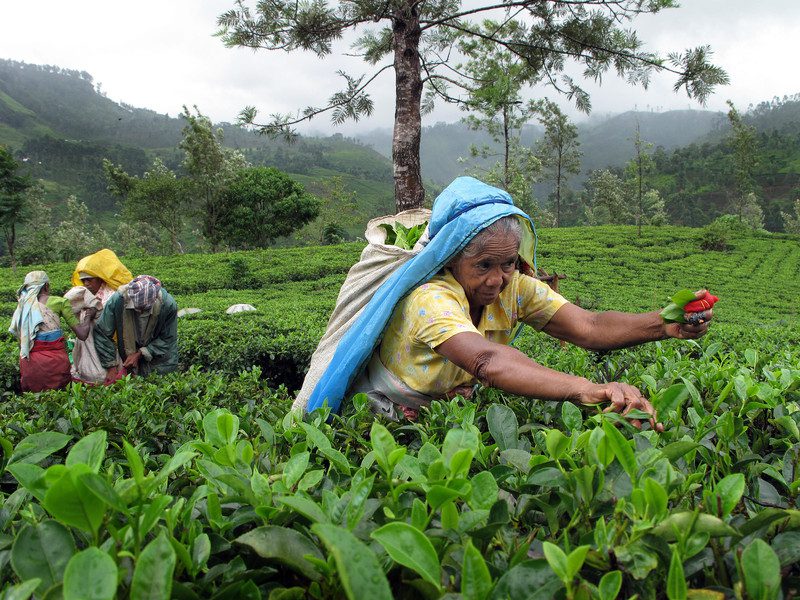Sri Lanka
Sri Lanka is slowly rebuilding after a 25-year civil war and the devastating 2004 tsunami. Yet recovery is precarious.
In January 2011, flash floods affected more than 1 million people and displaced 33,000 families. Communities who were finally rebuilding after the war and tsunami have once again been faced with crisis.
But it’s not all bad news. We’ve been working in Sri Lanka for more than 30 years to build peace, reduce poverty and stand up for class and caste equality. A large part of our work supports women and their families to access basic rights like food, water, sanitation and housing, and to develop viable livelihoods.
Rebuilding peace
For 25 years, conflict was an unfortunate reality of everyday life in Sri Lanka. As with most conflicts, the impact of war fell disproportionately on the poor.
In 2009, the civil war between the LTTE — a Tamil separatist group — and the Sri Lankan government finally ended. However, the conflict resulted in many deaths and immense poverty. More than 300,000 Tamil civilians were displaced from their homes. Many fled Sri Lanka, leaving a negative impact on local services, infrastructure, livelihoods, health and education.
But with peace comes the opportunity to rebuild.
Oxfam Australia and local partners are working with Sinhalese, Tamil and Muslim communities to build social and economic relationships and mutual understanding through exchange visits, language classes, market goods exchanges and joint problem solving.
We’re also working with government agencies to improve services to war-affected communities, including conflict mitigation and resettlement programs.
Growing food and earning an income
We’re working to make sure Sri Lanka’s poorest women and men have access to enough food through environmentally friendly initiatives like SRI rice cultivation (a technique that uses less water and produces more rice), rainwater harvesting, irrigation, organic farming and home gardens.
One of the people we’ve supported is Rathnawalee, who started working with an Oxfam partner organisation when she was very poor. Her small rice plot was far from a water source and did not produce enough rice to support her family. With SRI training, Rathnawalee is able to grow rice using less water. She now produces twice as much rice, and she sometimes has enough to sell. She is also helping to train other villages to increase their annual rice harvest.
We also support The Sustainable Community Marketing Program, which brings poor small-scale farmers and consumers together to buy and sell products directly, minimising the exploitation of middlemen and reducing household debt.
We support housing, irrigation and small businesses development programs, and we make sure government assistance schemes are accessible to women and men most in need of our support.
Empowering women
Women are gaining the skills and opportunities to bring about big change in their lives.
Kalaimani runs her grocery shop from her house in Thivukkalai village. As a women’s self-help group member, Kalaimani received a small loan from Oxfam through a local partner.
“Running the shop has made a positive change,” Kalaimani says, “it’s easier for me to look after my family and ensure that I am here to cook for my children.”
We support women’s self-help groups across Sri Lanka with small loans, savings schemes and training programs. This, along with other support, builds their confidence and independence so they can participate in community decision-making, become leaders and address issues such as domestic violence.
Community voice
We work to strengthen women-led community organisations to run projects and give the most marginalised women and men living in poverty a voice to demand their human rights. Community volunteers raise awareness on citizens’ rights, link people to government services and monitor the quality of projects being delivered.
Fast facts
Population: 21,866,445 (July 2014 est.)
% living below the poverty line: (i.e. US $1.25 per day): 8.9% (2010, The World Factbook)
% who don’t have access to safe water: 6.2% (2012 est.) classified as “unimproved drinking water source” according to CIA World Factbook
% who don’t have access to sanitation services: 7.7% (2012 est.) *classified as “unimproved sanitation facility access” according to CIA World Factbook
% of women who can’t read and write: 10% (women) 7.4% (men)
Life expectancy at birth: 79.99 years (women) 72.85 years (men)
All others sources: CIA World Factbook
